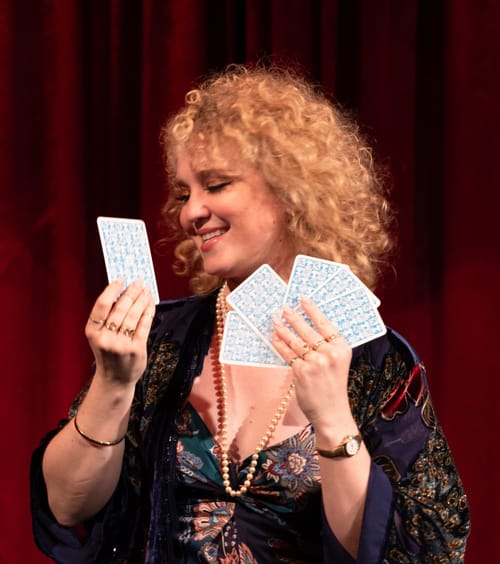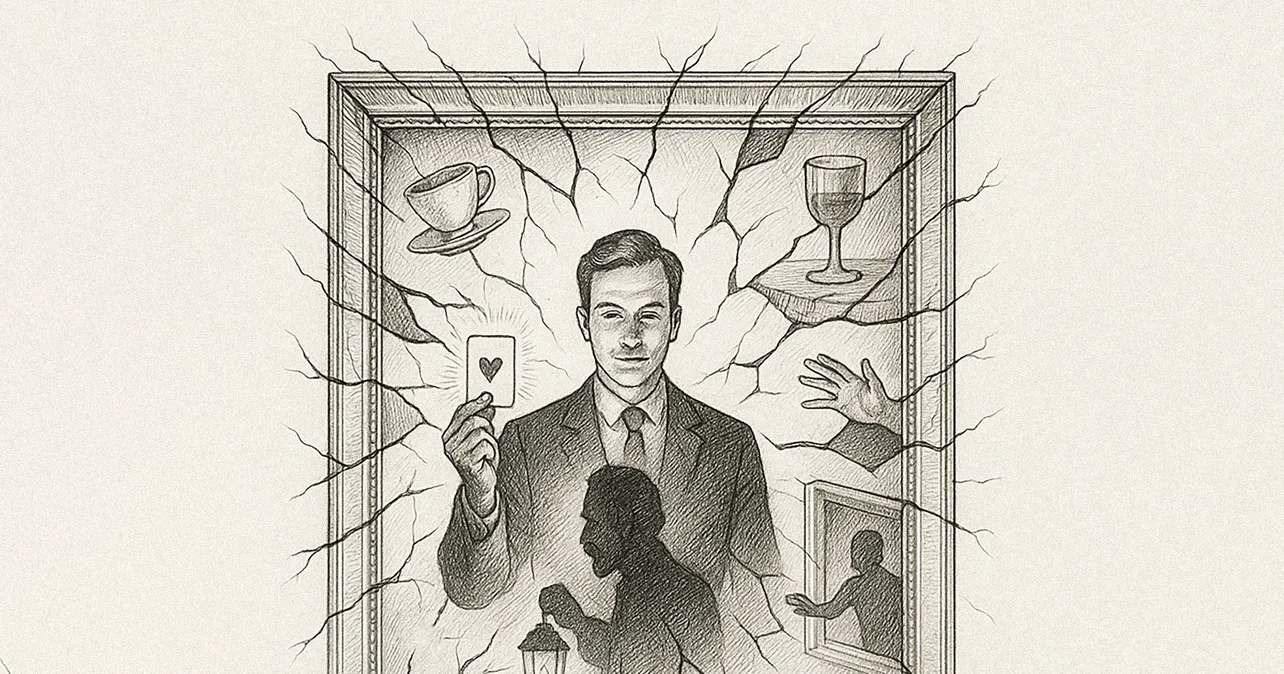Magic requires the audience to be grounded entirely in the laws of the universe. We know a solid cannot pass through a solid. We know gravity cannot be disobeyed. Magic wouldn’t be impressive, let alone perceived as magic, if audiences didn’t respect this. Magic is making the impossible possible, and in order to understand those impossibilities becoming a reality, the audience needs to know that everything presented is very real and very fair. That way, when we turn the situation on its head, they understand that whatever earthly rule we’re defying is actually being defied. When you place a face-up card into the center of the deck and it pops up on top, people know that’s impossible under normal circumstance—that’s what makes it magical.
This is how I begin every semester of my college class, Magic and Philosophy, where I combine my UCLA degree in philosophy (with a specialty in metaphysics) with my education with magic, which we’ll mark as starting with the Magic Castle Junior Program in 2003.
You see, when we magicians shatter an audience’s concept of the way the world works with any given effect, we momentarily jolt them out of their accepted realities and force them to confront their own perceptions and beliefs. This can provoke them to ask questions that make them think about their lives in new ways. Because of this, I argue that magic is inherently anti-nihilistic. But before we venture too deeply, let’s back up and ask: What is nihilism?

